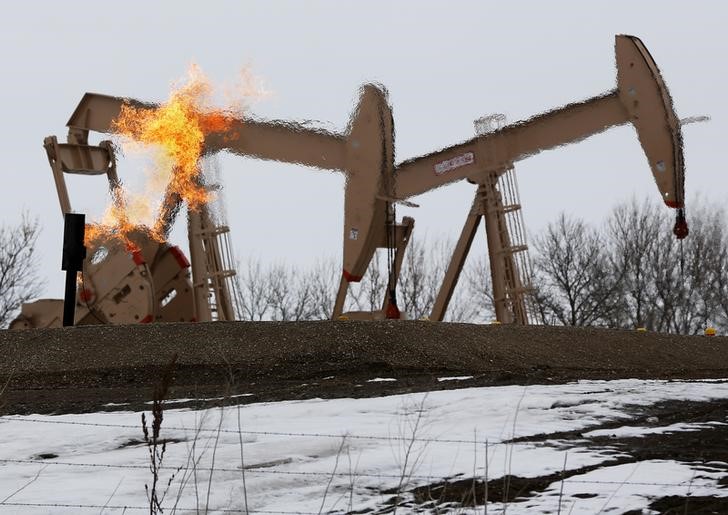By Geoffrey Smith
Investing.com -- Crude oil prices dipped on Thursday as two leading industry bodies issued cautiously optimistic forecasts for global demand this year.
By 1150 AM ET (1650 GMT), U.S. Crude Oil WTI Futures futures were down 0.6% at $58.33 a barrel while Brent Oil Futures crude futures were down 0.4% at $61.23 a barrel.
U.S. Gasoline RBOB Futures RBOB futures were down 0.2% at $1.6490 a gallon.
While both the International Energy Agency and the Organization of Petroleum Exporting Countries both predicted a solid rebound in demand in the latter part of the year, they both trimmed their forecasts or the year overall due to the impact of longer-than-expected lockdowns at the start o the year in much of the Northern Hemisphere, notably in Europe.
Germany, the continent’s largest economy, decided to extend most of its lockdown measures until March after a meeting of state and federal governments this week, while the U.K. is set to extinguish what remains of inbound international travel with a highly restrictive quarantine for new arrivals.
The IEA shaved 200,000 barrels a day from its January estimate to an average of 96.4 million barrels a day and said that “the forecasts for economic and oil demand growth are highly dependent on progress in distributing and administering vaccines, and the easing of travel restrictions in the world’s major economies.”
It noted that it expects U.S. supply to remain mostly steady at 11.4 million barrels a day, noting that most U.S. companies have given few signs of increasing output to their shareholders.
“The agency’s remarks do work as another reminder that oil is not out of the woods yet and that it is premature to overvalue it when the only thing that keeps prices at healthy levels is an artificial supply cut by OPEC and allies,” said Rystad Energy analysts Bjornar Tonhaugen in emailed remarks.
He added that near-term fundamentals had taken a turn for the bearish amid reports that a strike in Libya by port guards is set to end, allowing the resumption of exports from key facilities. The strike had cut the country’s output more than 200,000 barrels a day.
One company that confirmed its long-term downward output trend earlier was Royal Dutch Shell (LON:RDSa), which said that its oil output peaked in 2019 as it unveiled further details of its planned transformation into a carbon neutral company.
